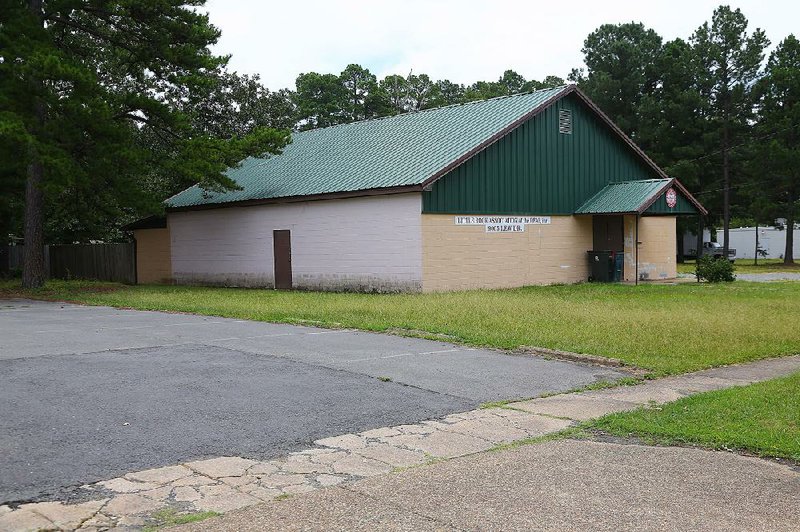The Little Rock Deaf Association has a license to party until 5 a.m., but it wants to transfer its use to raise money for operations.
Though Alcoholic Beverage Control stopped granting permits for bars to stay open until 5 a.m. more than 10 years ago, 23 permits are still active in Pulaski County. The association owns one of them.
John McMahon, president of the deaf association, said the proceeds from transferring use of the permit would keep its clubhouse on 9005 Lew Drive operational.
“It’s a sacred place for us,” he said. “Members work regularly in the hearing world. Everyone they meet is hearing. This is a place to mingle and associate with people in their own language.”
The association is attempting to transfer use of its permit to Tracy Johnson, owner of Club Trois at 4314 Asher Ave., though some have objected.
“We find empty beer cans and used condoms in the parking lot quite often and have installed a fence and outside lights to try to stop it,” said Dave Ryan of Ryan and Company Electrical Contracting and Maintenance Services, a nearby business, in a letter to Alcoholic Beverage Control, a division of the state Department of Finance and Administration.
Stuart Thomas, Little Rock chief of police, has also objected to the permit’s transfer. Though he declined to comment, an Alcoholic Beverage Control document stated Thomas objected because Club Trois would need to obtain a conditional use permit from Little Rock to remain open until 5 a.m. He also stated Johnson was delinquent in his 2011 personal property taxes, and a neighboring club had filed an objection letter.
Johnson didn’t respond to phone calls requesting comment.
Alcoholic Beverage Control staff members said the permit can’t directly transfer from one organization to another, but the association can file a change-of-manager application that would allow Club Trois to manage and use the permit. There’s no law that prevents the association from charging Club Trois for use of the permit.
“They’re out there and they’re never going to go away,” said Michael Langley, director of Alcoholic Beverage Control, referring to the 5 a.m. permits.
However, Langley and the Alcoholic Beverage Control Board have the power to deny the change-of-manager application. That already happened once to the association in 2011 when it tried to transfer its permit to Juanita’s Cafe and Bar in the River Market District.
Langley denied the application after strong opposition. Records show that Little Rock Mayor Mark Stodola, the Little Rock Police Department and the Central Arkansas Library System opposed the transfer. Documents show businesses in the area were split over the issue.
“Nothing good happens after two in the morning,” Langley said. “Five a.m. permits don’t generally serve the public good, however, I see where they exist for folks not on a nine to five schedule.”
The deaf association acquired the permit in 1983, a few years after it bought its clubhouse. The association incorporated as a nonprofit on March 9, 1967, according to documents filed with Alcoholic Beverage Control.
McMahon said the association rented space before it bought what was a lawn-mower shop on Lew Drive about 1980. Today, the association uses the building to host events for the Arkansas School for the Deaf, Halloween activities for children, parties on New Year’s and St. Patrick’s Day and other events for families and adults.
Though the clubhouse is a central meeting place for association members, McMahon said it is hard to support.
“As of this moment, we make our living off the profits of the events,” McMahon said. “That pays toward the upkeep of the club, the taxes, the ownership costs.”
The nonprofit’s tax filings show that it raised about $10,000 to $15,000 from 2007 to 2009. Overall, it spent slightly more than it raised during those years. McMahon said the alcohol permit costs about $1,500 to $2,000 a year to maintain.
“Without the license issue, I hope we can grow our membership,” he said. “With more revenue, we get more opportunities.”
McMahon said the association has not yet worked out details on how much Johnson would pay for use of the permit if the change-of-manager application were to be approved. He said one-time, quarterly and yearly payments are on the table.
“People have put blood, sweat and tears into this center,” McMahon said. “Most similar clubs have not been able to make it.”
The final board hearing is scheduled for Wednesday at 9:30 a.m. in the Alcoholic Beverage Control office in Little Rock.
“In the very end, it comes down to the taxpayers,” Langley said. “They’re going to be the neighbors or passers-by, and we have to make sure their safety and well-being is protected.”
Business, Pages 68 on 07/28/2013

